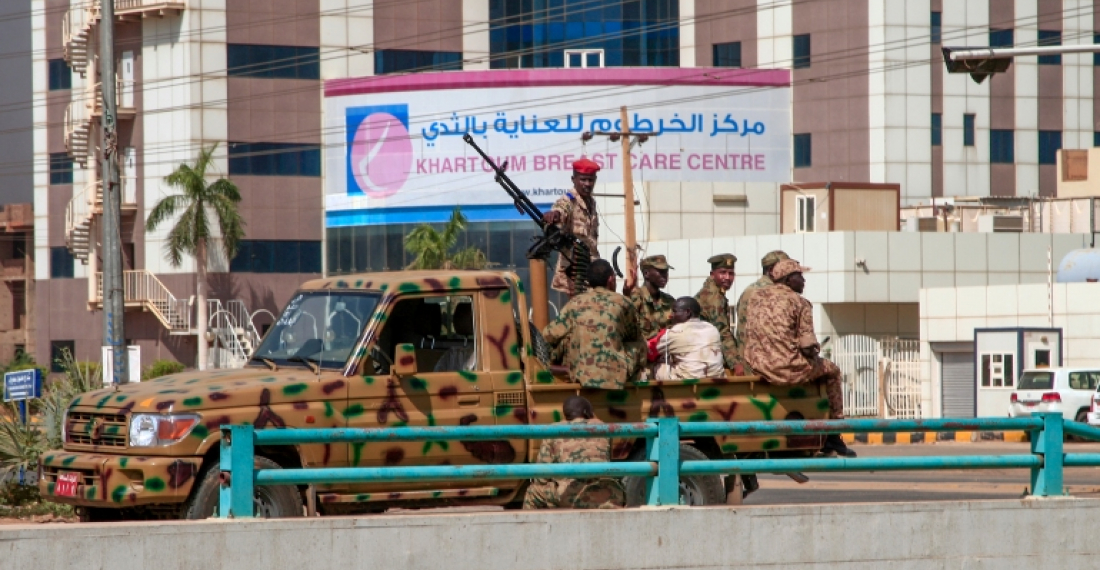Sudan’s military seized power Monday, dissolving the transitional government hours after troops arrested the prime minister. Thousands of people flooded into the streets to protest the coup which undermines efforts towards a democratic government.
The takeover comes more than two years after protesters forced the ousting of longtime autocrat Omar al-Bashir and just weeks before the military was supposed to hand the leadership of the council that runs the country over to civilians.
Thousands poured into the streets of the capital, Khartoum, and its twin city of Omdurman after news emerged on Monday morning that the prime minister, Abdalla Hamdok, and other senior officials had been arrested. Protestors blocked streets and set fire to tires as security forces used tear gas to disperse them.
As plumes of smoke filled the air, protesters could be heard chanting, “The people are stronger, stronger” and “Retreat is not an option!” Videos on social media showed large crowds crossing bridges over the Nile to the centre of the capital, while the US embassy warned troops were blocking off parts of the city.
At least 12 protesters were wounded in demonstrations, according to the Sudanese Doctors Committee, which did not give details.
In the afternoon, the head of the military, Gen. Abdel-Fattah Burhan, announced on national TV that he was dissolving the government and the Sovereign Council, a joint military and civilian body created soon after al-Bashir’s ouster to run the country.
Burhan said quarrels among political factions prompted the military to intervene. The general declared a state of emergency and said the military will appoint a technocratic government to lead the country to elections, set for July 2023. But he made it clear the military will remain in charge.
“The Armed Forces will continue completing the democratic transition until the handover of the country’s leadership to a civilian, elected government,” he said. He added that the country’s constitution would be rewritten and a legislative body would be formed with the participation of “young men and women who made this revolution.”
The Information Ministry, still loyal to the dissolved government, called his speech an “announcement of a seizure of power by military coup”.
A statement by the EU High Representative for Foreign and Security Policy, Josep Borrell, on Monday stated:
The EU condemns the detention of Prime Minister Abdalla Hamdok and other members of the civilian leadership by Sudan’s military forces. We call on the security forces to immediately release those they have unlawfully detained. The actions of the military represent a betrayal of the revolution, the transition, and the legitimate requests of the Sudanese people for peace, justice and economic development.
The right of peaceful protest must be respected; violence and bloodshed must be avoided at all cost; we also urge communication networks to be open.
The EU will continue to support those working for a democratic Sudan with a fully legitimate civilian government ensuring peace, freedom and justice for the Sudanese people. This remains the best guarantee for the long-term stability of the country and the broader regions.
Jeffrey Feltman, the U.S. special envoy to the Horn of Africa, said Washington was “deeply alarmed” by Monday’s developments.
source: commonspace.eu with agencies
photo: A military vehicle on the streets of Khartoum on 25 October 2021 (picture courtesy of Al Jazeera, Doha)







